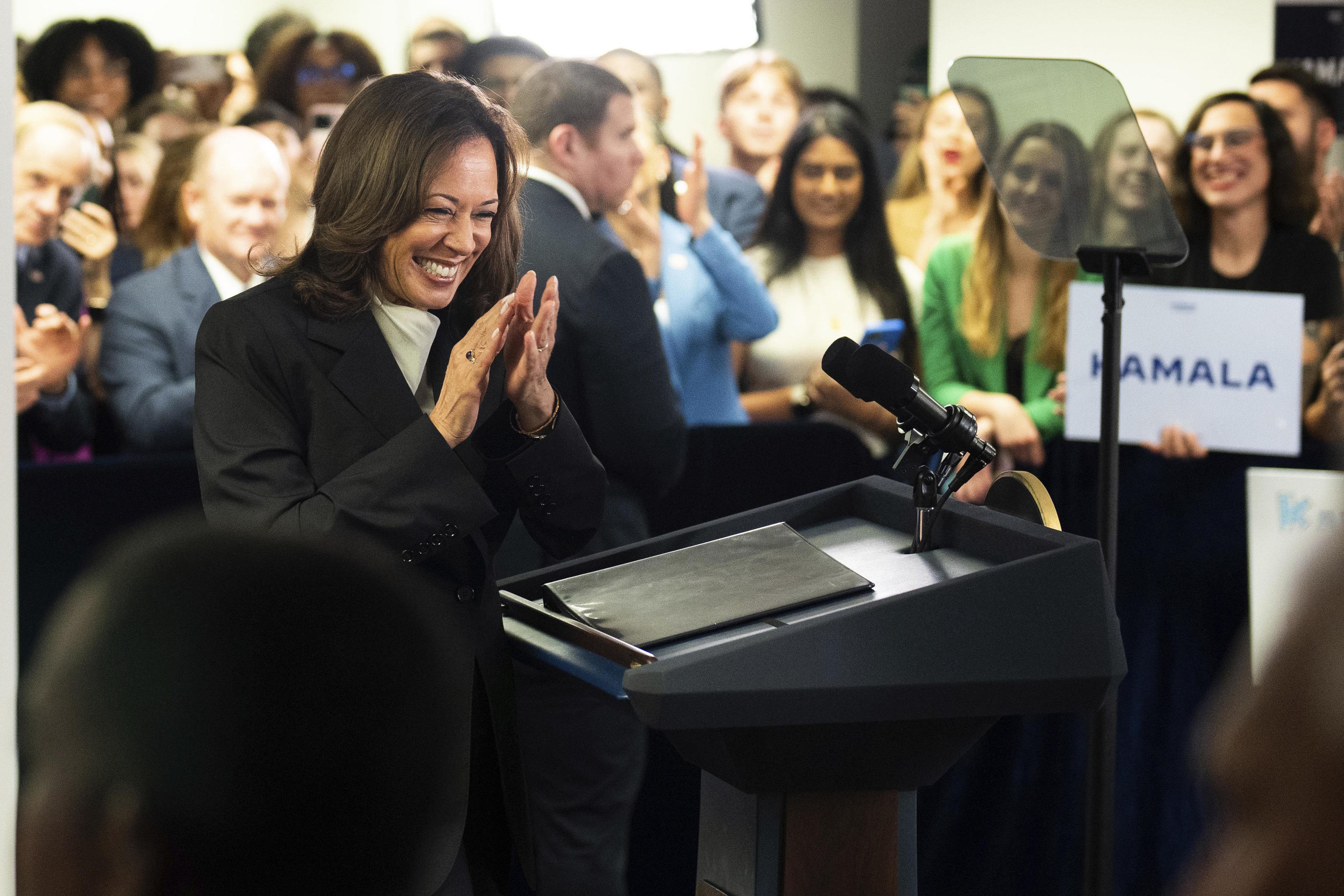It has been a domino effect. In just 36 hours, the Vice President of the United States, Kamala Harris, has secured the verbal support of more than 2,200 delegates out of the 3,949 who must vote for the person who will be the next Democratic Party candidate for the presidency of the United States, according to calculations by the Associated Press news agency. This means that Harris already has 55% of the pledged delegates, making her technically the candidate. Only illness or accident could prevent her from reaching that position.
As for the commitment of the delegates to vote for Harris when they have to do so - which could be as early as next week via teleconference, to avoid legal issues due to changes in candidacies in some states - there are no doubts.
Meanwhile, a first survey by the Morning Consult company has narrowed Trump's lead from the six points he had over Biden to just two against Harris. The survey, conducted on Sunday afternoon and Monday morning, reveals that 65% of Democrats approve of replacing the president with his number two on the ticket.
In this regard, the Convention bounce does not seem to have occurred for Trump, despite him closing his convention on Friday, while the drama surrounding Biden's decision not to continue campaigning seems to have boosted the vice president. In any case, the effects of Conventions are becoming smaller - barely noticeable in 2020 - and what Harris needs to do now is demonstrate that she is a better candidate than Biden in the 106 days remaining until the elections.
But more notable than the possible reduction in Trump's lead is the rapid convergence of Democrats, a party always divided into factions, around Harris. It is a process reminiscent of what happened with Joe Biden in the week of February 29 to March 6, 2020, when half of the contenders for the nomination in that party withdrew from the primaries and endorsed the current president.
On that occasion, it was a strict political calculation: with the uncertainty created by the specter of Covid-19, which was then just a strange disease rapidly approaching the US, major Democratic donors convinced the candidates that, to defeat a Donald Trump with a small but committed base, unity was necessary.
It is still early to draw conclusions this time, but the deluge of money received by Harris seems to have played a key role in convincing even former House Speaker, Nancy Pelosi, who, like Harris, is from San Francisco and has a very poor relationship with the future candidate, to support her. And, as in 2020, practicality.
Trump remains ahead, undecided voters are only 5% of those who say they will vote, and what Democrats need to do is mobilize those who are going to stay at home. This means, first and foremost, unity.
Harris, 59, is the youngest person running for the White House since Obama won re-election in 2012, and she must focus on mobilizing young voters and minorities to defeat a Donald Trump who remains the favorite.
But the unity of Democrats around Harris has not only been an exercise in pragmatism. It has also been a consequence of the Vice President's visit to what was previously Biden's campaign headquarters and is now hers.
Joe Biden, who is recovering from Covid-19, contributed to the unity ceremony by stating, in a remote address from his home, that "the name at the top of the ticket has changed, but the mission remains the same." The president declared that "we have to save this country. Trump is still a danger to the community. He is a danger to the nation."
Even the largest union in the US, AFL-CIO, which is very close to Biden, has expressed support for Harris, even though she has never shown the slightest interest in the white working class that is increasingly leaning towards Donald Trump.
